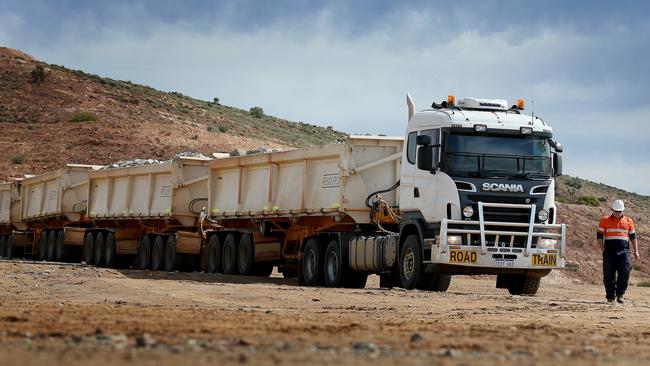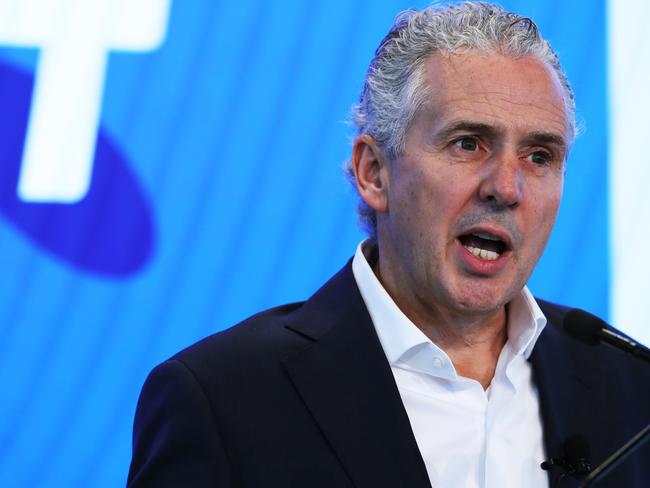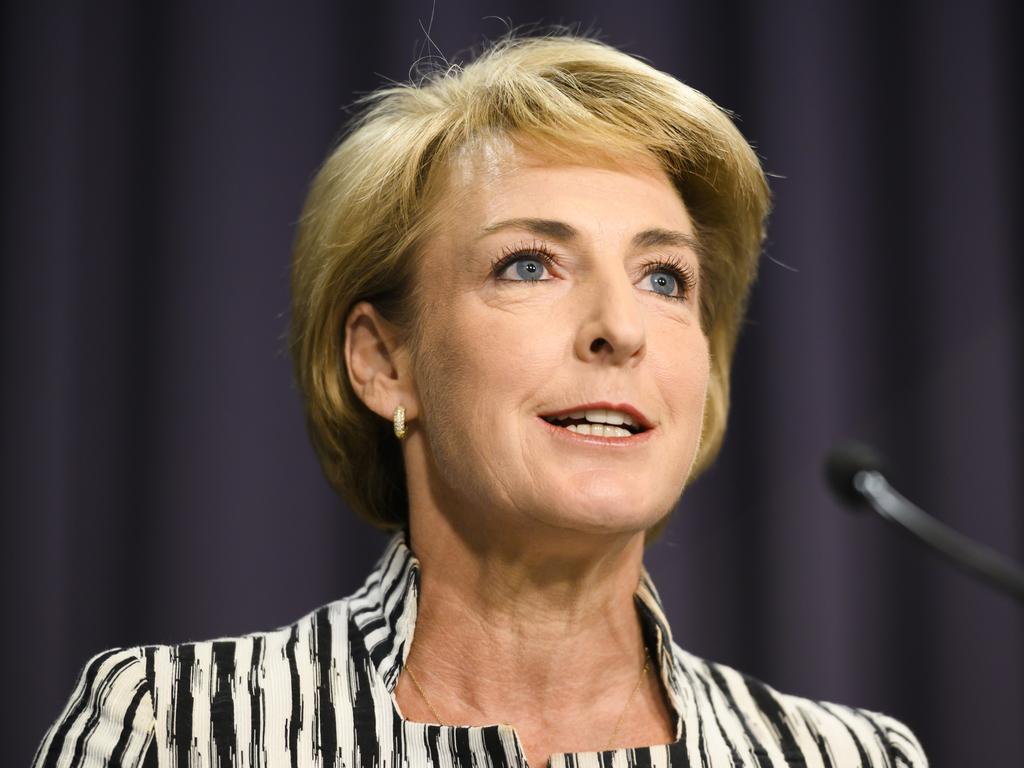Rio Tinto cuts supplier payment terms to 20 days
Rio softens after dumping ‘dynamic discounting’ following outrage from suppliers and political pressure.

Rio Tinto has slashed payment terms for the majority of its suppliers to 20 days, following political and community outrage, and recognising its suppliers are the “lifeblood of the communities” across Australia.
The move comes less than a week after Rio dumped its so-called “dynamic discounting” scheme - a practice that urged suppliers to cut their invoices in exchange for prompt payment.
The overturning of both payment policies came after The Australian revealed that Rio was “aggressively” pushing the scheme on its 10,000 Australian suppliers - which cuts invoices by about 2 per cent if a supplier wants to be paid earlier than 30 days, delivering up to hundreds of millions of dollars for the cashed-up mining giant.
Rio Tinto chief financial officer Simon Trott said the company had dumped the practice and cut payment times to strengthen its relationship with its Australian suppliers, whom it paid around $14bn in 2018.
“Small businesses are often the lifeblood of the communities in which we operate and being paid quickly is important for their cash flows. That is why we are shortening our payment terms to less than three weeks in order to further strengthen our partnership with smaller Australian suppliers, that are a vital part of Rio’s supply chain,” Mr Trott said.
“As a result of the new policy, around 90 per cent of Rio Tinto’s Australian business suppliers will be paid within 20 days.”
Under the new policy, Rio has also changed its definition of small suppliers from those who supply up to $1m of goods and services to also include businesses with annual turnover of up to $10m.

“The new payment terms, and ongoing work to simplify and systemise our procurement processes, reflect a commitment to improve our partnership with suppliers,” Mr Trott said.
Rio’s decision comes a day after Telstra cut its payment terms from 62 to 20 days, after The Australian revealed the telco risked losing hundreds of million of dollars of federal government contracts if it didn’t pay its suppliers promptly.
Like Rio, Telstra had partnered with financial technology firm Taulia — a company based in the low tax state of Delaware — to create the payday lending scheme, which involved suppliers taking a haircut on the invoices in exchange for prompt payment.
The Australian revealed that Taulia used big data and artificial intelligence to calculate a supplier’s willingness to discount its invoices and how much of a financial hit they could take — and Telstra was exploiting a loophole in the BCA’s supplier code to avoid paying small businesses on time.
Telstra chief executive Andy Penn said under the new terms suppliers with invoices of up to $2m annually will receive payment within 20 days.
“I recognise how important cash flow is to businesses, particularly given the challenges the bushfires have presented, and this change will mean small and medium businesses across the country have cash in their hands sooner,” Mr Penn said.

“We are confident this change will mean our approach goes well beyond any existing definition of small business, including companies with less than 20 employees and also $10m of annual turnover.”
Federal Small Business Ombudsman Kate Carnell praised Telstra and Rio for overturning their payments policies, saying their suppliers were mostly small businesses that no longer “need to accept a supply chain finance option to be paid as they should be”.
“We are encouraging other big businesses to do the same,” Ms Carnell said, adding late payments to suppliers cost the national economy about $7bn a year.
“We know that by paying small businesses on time, the whole economy benefits. Both our Payment Times Inquiry and our Insolvency Practices Inquiry show that cash flow is the leading cause of insolvency.
“Cash flow is always king for small businesses and never more so than now, particularly for small businesses in bushfire affected communities.”
Prime Minister Scott Morrison told Australia’s biggest companies in November 2018 that if they wanted to do business with the government they had to adopt the government’s own payment terms of paying their suppliers within 20 days.
Fast track the legislation
Shadow Employment and Industry Minister Brendan O’Connor called on the government to fast track that legislation.
“While two major companies in Australia have acted swiftly, where is the federal government’s plan?” Mr O’Connor said.
“It has been 18 months since (Prime Minister) Scott Morrison and (Small Business Minister) Michaelia Cash, with great fanfare, announced they would require big business to have a 20-day payment time to small business in order to get government contracts, and yet nothing is up and running.
“This supply chain financing practice is unconscionable, but merely the tip of the ice-berg as these dodgy payment plans are risky and contribute to the economic woes we face.”
A spokesman for Senator Cash said on Friday: “The Morrison government will work to ensure those doing business with the federal government will meet our 20-day payment terms for their small business suppliers.”
In the meantime, the government plans to introduce the separate Payment Times Reporting Framework legislation this autumn. Once implemented, the scheme will require Australian businesses with an annual turnover of $100m or more to report how and when they pay their small business suppliers.
“This will be a landmark reform which will encourage fairer and faster payment times for small businesses,” Senator Cash said.
Business Council of Australia chief executive Jennifer Westacott said she had always encouraged BCA members, which include Telstra and Rio, to pay suppliers earlier than 30 days.
This is despite the BCA grandfathering changes its made to its small business definition outlined in its voluntary Australian Supplier Payment Code last year to existing signatories. This meant Telstra and Rio were allowed to adhere to the former conditions which stated a small business employed fewer than 20 staff.
“The Business Council of Australia’s voluntary supplier payment code sets a minimum 30 day period to pay small suppliers but we have always encouraged businesses, where possible, to pay earlier than this,” Ms Westacott said.
“In the wake of the bushfire crisis, it is particularly important that small businesses in devastated communities have the cash flow they need to rebuild and help their economies recover.
“Our members are working to pay invoices to bushfire affected small business before they are due and we encourage all businesses to follow this lead.”
Minerals Council of Australia chief executive Tania Constable welcomed Rio’s backflip, saying: “mining is a big part of many Australian communities and regions, so the MCA welcomes Rio Tinto’s initiative to strengthen support for small business and local procurement.”





To join the conversation, please log in. Don't have an account? Register
Join the conversation, you are commenting as Logout